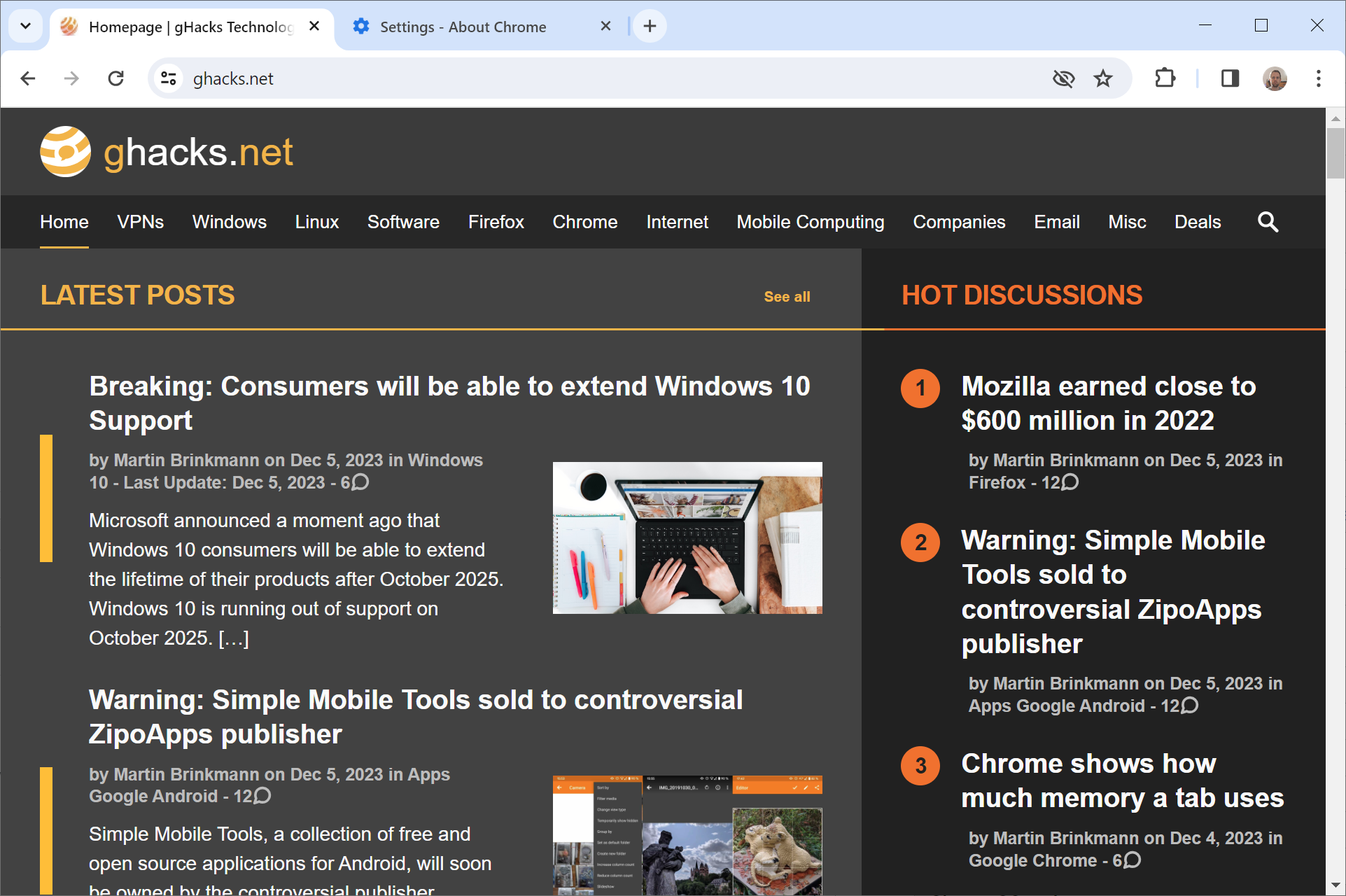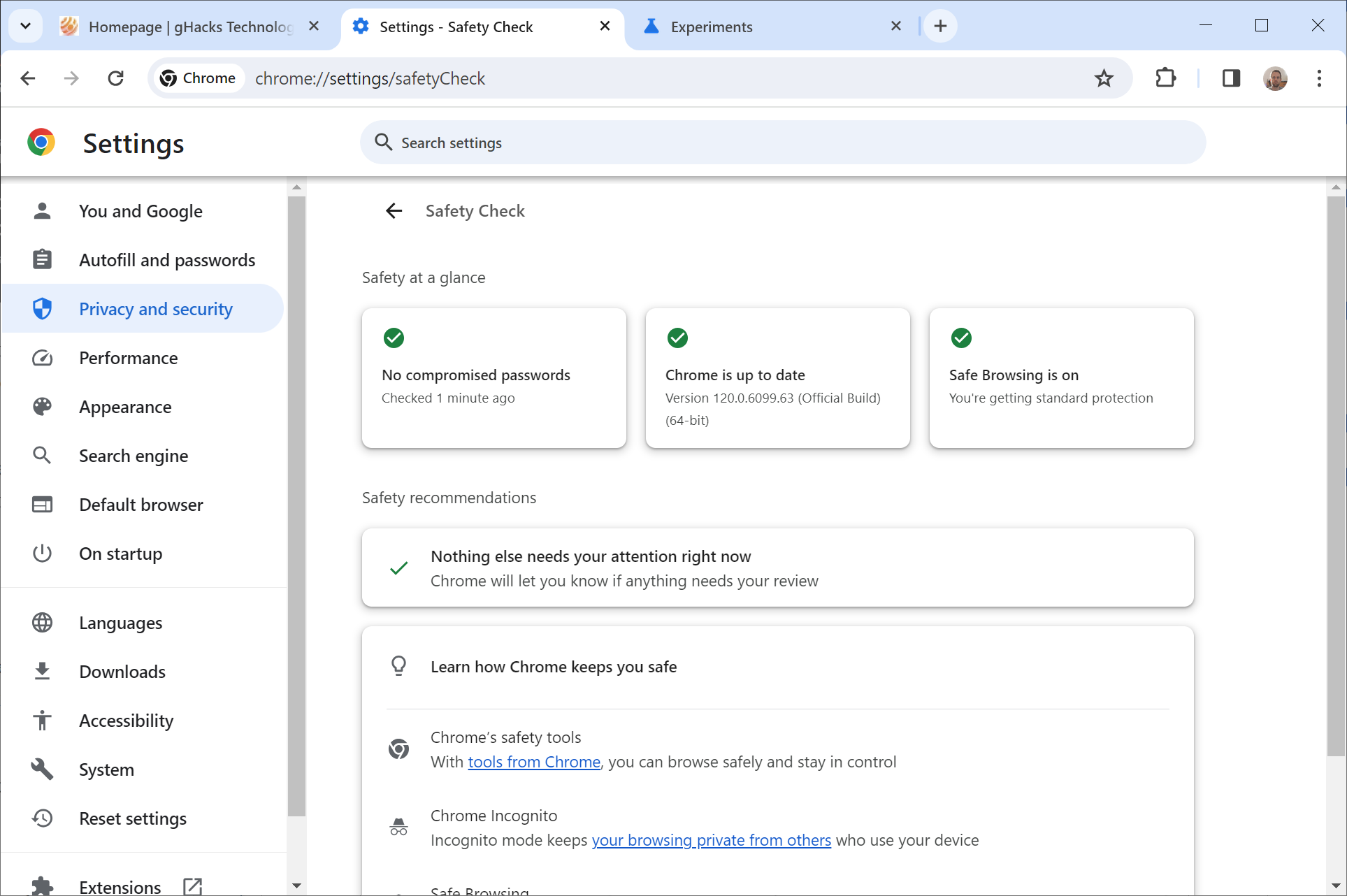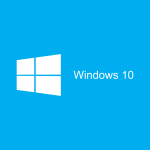Google released Chrome 120 to the public a moment ago. The new version of the Chrome browser is available for all supported platforms. Most Chrome installations will update automatically thanks to the built-in updating functionality. Users may accelerate the installation of the update by selecting Menu > Help > About Google Chrome.
The page that opens displays the installed version and installs any update that it finds. A restart is required to complete the update.
Chrome 120: security fixes

Google Chrome 120 includes 10 patches for different security issues. The official announcement on the Chrome Releases website lists five of them only as Google has a policy of not listing internally discovered security issues publicly.
The five listed security issues have an aggregate severity rating of high. The patches address use after free and inappropriate implementation issues in Media Stream and Capture, Side Panel Search, Autofill and Web Browser UI.
Non-Security changes

Chrome 120 introduces a number of important changes that are non-security related. The new version is the first that does not support Android 7 Nougat anymore. Android users who use Nougat devices won’t get the update, unless they are able to update to Android 8 or newer versions. Speaking of support changes, Chrome 120 deprecates and also removes Theora support from the browser.
Google is rolling out a “new proactive Safety Check” feature on the desktop that runs checks regularly. The announcement says that it “checks the browser for safety-related issues” and notifies the user about issues discovered during these checks.
There is also a new Safety Check page in Settings that returns the results of the last scan and recommendations.
You can enable this new feature by setting chrome://settings/safetyCheck to Enabled. Users who do not want it can set the flag to Disabled instead. Note that Google will remove the flag eventually, leaving users without option to turn frequent checks off.
Google has also changed the Permission Suggestion Service. It is now sending URL-based signals to Google Servers. Administrators could prevent this in previous versions with the help of the SafeBrowsingProtectionLevel policy, but this has no effect anymore in Chrome 120 in this regard according to Google.
Another new feature in Chrome 120 is the ability to share passwords. This is integrated into Chrome’s native password manager and works only for Google Family Group accounts. Members may share one password at a time with other members of the group. Google notes that shared passwords can’t be “updated or revoked by the sender”.
Google starts the deprecation of third-party cookies in Chrome 120. About 1% of all Chrome users will have third-party cookies disabled by January 2024. This growth to the entire population by mid-2024.
Chrome 120 includes two iOS specific changes as well. The first enables the saving of images to Google Photos, the second package tracking.
Developers may want to check out the Platform Status entry for Chrome 120, as it lists information about development-related changes in the new stable version.




